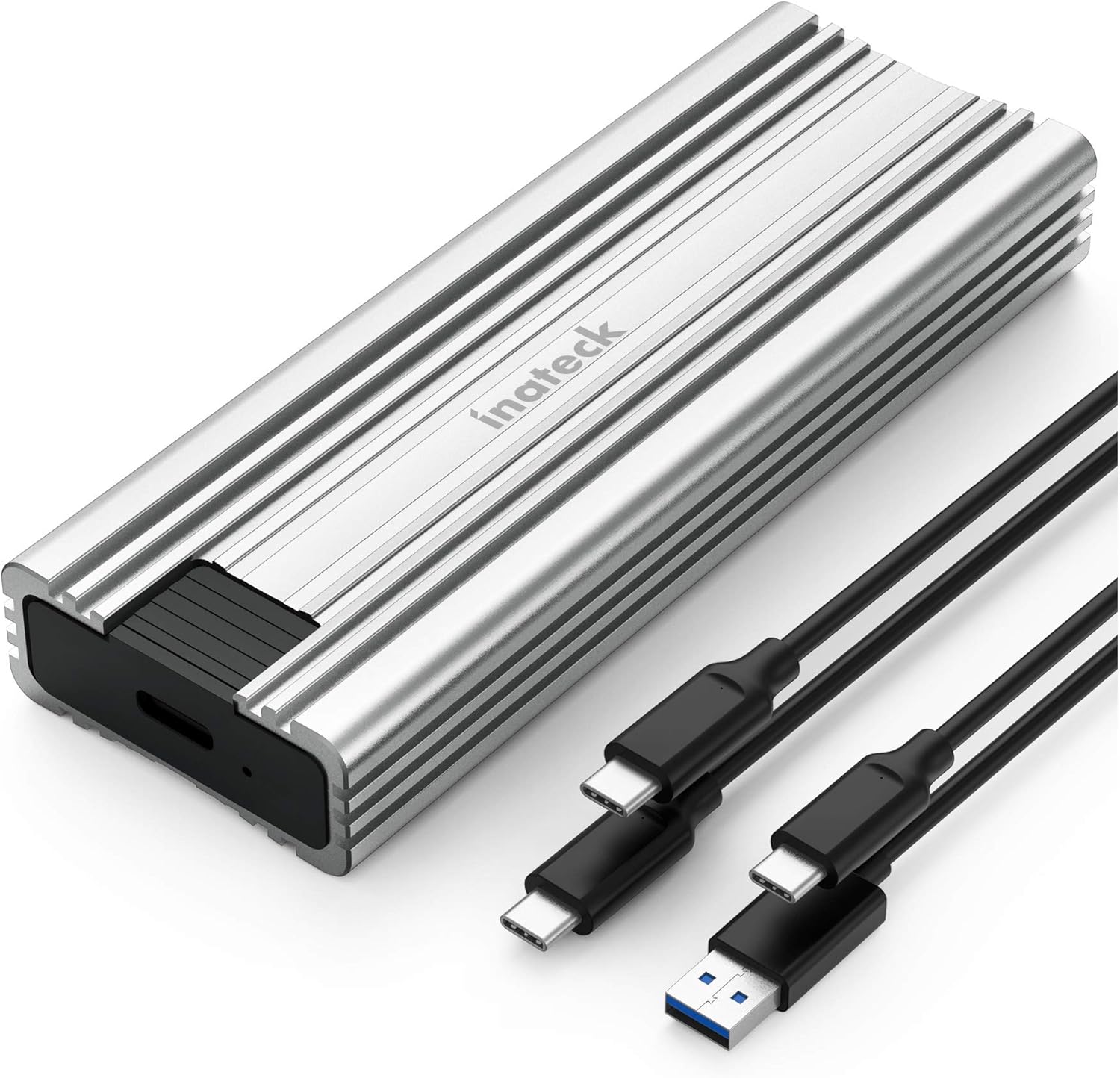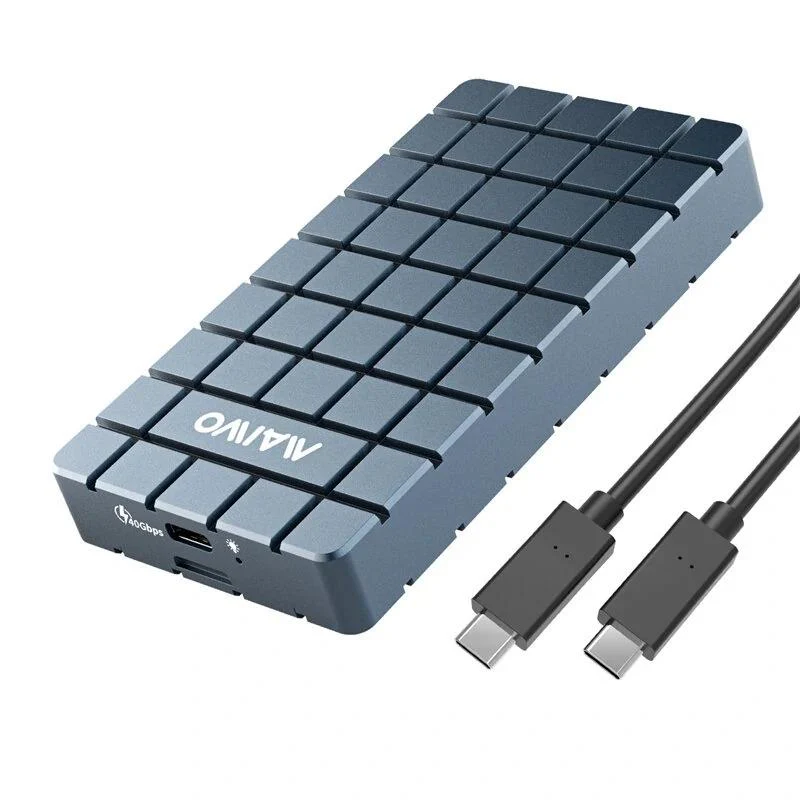NVMe enclosures, chipsets & interfaces
I recently decided to fall down another rabbit hole – external enclosures for NVMe drives. It wasn’t a very deep rabbit hole, but it was worthwhile and it only cost me ~60 EUR.
I started out with a Samsung 990 PRO PCIe 4.0 NVMe M.2 SSD 4 TB and
needed some kind of enclosure to use it with my aging Macbook Air M1,
with the end goal of storing my Lightroom library on it. I googled
and found a reasonably priced (~30 EUR) Inateck NVMe M.2 USB 3.2 Hard Drive Enclosure, and used it happily for almost 2
years.

Inateck NVMe M.2 USB 3.2
Then I (sadly) came across this excellent article on blazing fast
NVMe enclosures, and decided I wasn’t happy with my
current solution anymore. After some searching I found the MAIWO K1717 40Gbps M.2 NVMe SSD Enclosure for ~60 EUR and performed
some simple benchmarks at home.

MAIWO K1717
Just how much performance had I left on the table? Quite a lot, actually!
| Enclosure | Read | Write |
|---|---|---|
| Inateck + 990 PRO | 839 MB/s | 851 MB/s |
| MAIWO USB4.0 NVMe + 990 PRO | 3018 MB/s | 3167 MB/s |
| MBA M1 Built-in NVMe | 2960 MB/s | 1816 MB/s |
The new case uses an ASM-2464PD controller, while the older uses
something else…and the newer case uses Thunderbolt 3 (40 Gbps)
instead of USB 3.2 (10 Gbps). Increasing the bandwidth by four times
and using a better controller gives us a ~3.5 times improvement in
performance, and this at a ~2 times higher price.
The only downside thus far is that the new case gets really hot, which I guess is a testament to its ability to passively cool the NVMe drive. The case is ~200 grams of aluminum and feels very sturdy.